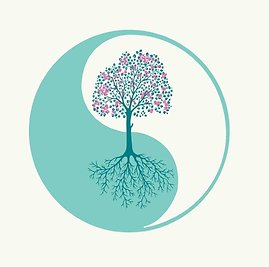The Heart of Core Process Psychotherapy - The Four Noble Truths
Core Process Psychotherapy (CPP) is a contemplative, psycho-spiritual approach that combines the curative power of awareness with western psychotherapeutic theories.
The word "Core" refers to the freedom and joy at the heart of our nature or Being and "Process" is the exploration of any suffering and the obstacles that may obscure our freedom and joy. CPP offers an opportunity to be present to our current experience and to allow exploration into how our past experiences may have affected us.
Core Process Psychotherapy is grounded in the Buddhist teaching on 'suffering' . This teaching, known as the 'Four Noble Truths' presents us with an understanding that even though there is 'suffering', there is also a pathway out of 'suffering'. Any exploration will be undertaken with Compasssion, Love Kindness, Sympathetic Joy and Equinimity; qualitlies known in Buddhism as the Brahama Vihara's.
The First Noble Truth: There is suffering and it must be understood.
We are aware that life is in a constant state of change. Everything changes, and we therefore need to respond to those changes. Change in Buddhism is the concept of impermanence which is an important concept in CPP, as if nothing stays the same then what we experience will also change.
To change any suffering though, we first need to understand it. In the process of understanding we may explore any strategies or 'defences' that we have created to avoid or reduce our suffering. These strategies however. which at one time served a purpose, can themselves become a cause of suffering as we cling to what we believe will protect us.
The Second Noble Truth: There is an origin to suffering.
For suffering to be present it has to have an origin, a point when it started. This can be understood as being our unconscious drives, urges, tendencies and desires that organise our behaviour. How we are, often arises from our relationships to others, events or objects. It can be seen in terms of ‘cause and effect’; “When there is this, that is. With the arising of this, that arises. When this is not, neither is that. With the cessation of this, that ceases”
The Third Noble Truth: There is a way to be released from suffering.
This third noble truth states that as we begin to understand our suffering we begin to realise that in order to experience suffering there must be 'something' that experiences the it. This can be understood to be our 'Core' or the 'inherently healthly' part of us. This 'Core' leads us to a fundamental truth in CPP, held by certain traditions in Buddhism as well as many other ‘spiritual paths’, that at the centre of our being or 'Self', whether it is known as our Spirit, Soul, Big Mind, Zen or our 'Core', we are free from suffering and through exploration and understanding we can begin to let go of any suffering and again experience a natural state of wellbeing.
The Fourth Noble Truth: There is a pathway that if we follow we can be released from our suffering.
The fourth noble truth provides us with a pathway to help explore and begin to understand our suffering. It is known as the 'eight fold pathways'. These pathways involve 'process and enquiry', and covers the areas of intentionality, wisdom, ethical and moral conduct, together with an attitude and fostering of awareness and mindfulness .
These pathways enable a relational enquiry where the therapist brings together the practice of awareness and psychotherapeutic techniques to assist the client in understanding their suffering and to support them on a transformational journey to a greater sense of wellbeing.


